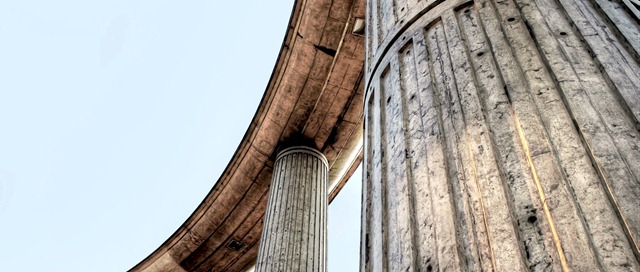
We live in a very interesting time—a time when the very moral foundation of this country is being challenged. The general American feeling of “live and let live” has come directly up against a culture and morality that would have been foreign to the founders—and those very founders are being trotted out as accepting and perhaps even promoting such changes.
This should not be so.
I read the following article while preparing for a message that included the topic of polygamy, and I found that it was an interesting commentary on the time of same-sex marriage.
See what you think:
United States Supreme Court (1889), stated in the case of Davis v. Beason, 133 U.S. 333, 341–343, 348 (1890), that the U.S. considers bigamy and polygamy as crimes. The State of Idaho also declared bigamy and polygamy illegal, and declared that anyone who commits it, teaches it or even encourages it, is forbidden from voting or holding office in that Territory.
A man named Samuel Davis was caught in the crime, fined and jailed. He argued that he was being imprisoned for his religious belief and that he should have the freedom to commit bigamy and polygamy under the First Amendment. The decision of the Court was delivered by Justice Stephen Field, who had been appointed by President Abraham Lincoln in 1863.
It stated: Bigamy and polygamy are crimes by the laws of all civilized and Christian countries. They are crimes by the laws of the United States, and they are crimes by the laws of Idaho. They tend to destroy the purity of the marriage relation, to disturb the peace of families, to degrade woman and debase man …,
To extend exemption from punishment for such crimes would be to shock the moral judgement of the community. To call their advocacy a tenet of religion is to offend the commons sense of mankind.
There have been sects which denied as a part of their religious tenets that there should be any marriage tie, and advocated promiscuous intercourse of the sexes as prompted by the passions of its members.…
Should a sect of either of these kinds ever find its way into this country, swift punishment would follow the carrying into effect of its doctrines, and no heed would be given to the pretence that … their supporters could be protected in their exercise by the Constitution of the United States.
Probably never before in the history of this country has it been seriously contended that the whole punitive power of the government for acts, recognized by the general consent of the Christian world … must be suspended in order that the tenets of a religious sect … may be carried out without hindrance.
The constitutions of several States, in providing for religious freedom, have declared expressly that such freedom shall not be construed to excuse acts of licentiousness.…
The constitution of New York of 1777 provided: The free exercise and enjoyment of religious profession and worship, without discrimination or preference, shall forever hereafter be allowed, within this State, to all mankind: Provided, That the liberty of conscience, hereby granted, shall not be so construed as to excuse acts of licentiousness.… The constitutions of California, Colorado, Connecticut, Florida, Georgia, Illinois, Maryland, Minnesota, Mississippi, Missouri, Nevada and South Carolina contain a similar declaration.1
- Federer, W. J. (2001). Great Quotations : A Collection of Passages, Phrases, and Quotations Influencing Early and Modern World History Referenced according to their Sources in Literature, Memoirs, Letters, Governmental Documents, Speeches, Charters, Court Decisions and Constitutions. St. Louis, MO: AmeriSearch. [↩]
2 thoughts on “US Supreme Court on Religion and Marriage”